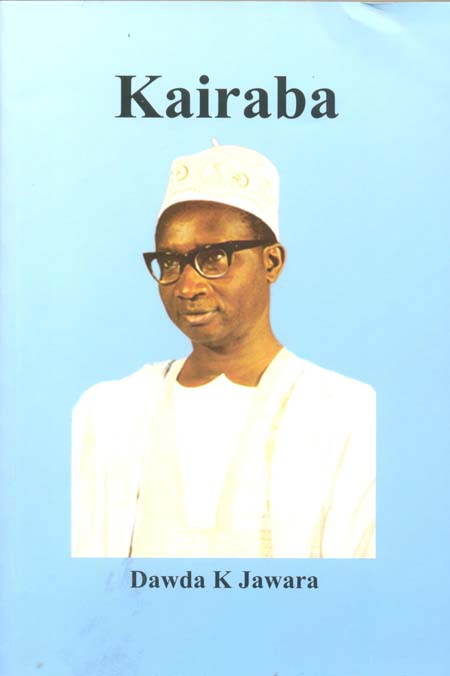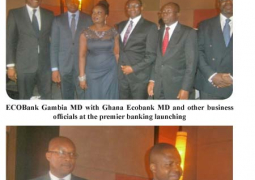
Sir Dawda enters school
'After I arrived in Bathurst, Pa Yoma (Sir Dawda's guardian in Bathurst) wasted no time in making arrangements for me to go to school. I found myself already registered at Mohamedan School where I entered at the Sub-Standard class in Wellington Street. Mohammedan School was slightly different from the daara I had started at home at 37 Wellington Street', p.14.
Sir Dawda's father
'My father's small shop found a prominent place among the big trading firms that had set up along the waterfront in Walikunda. He was so preoccupied with farming and trading that it was not clear which he was-a farmer or businessman'. P.21
Sir Dawda walks from Brikama to Barajally
'The Easter holidays in March and April 1938 could no have come at a more opportune time. I badly needed a break to go and see my mother and reconnect with Barajally... I had no money of my own... I hitched a ride on the lorry to Brikama... (p.86).
The War Years 1939-1945
'All through August and early September 1939, we listened to radio broadcast from London of news about the (Second World) war. A school headmaster, Master John Bolinggbroke Fowlis owned a radio receiver at his home at 9 Louvel Square in Bathurst... The news only got worse by the day...' p.101.
Bathurst and the Second World War
'Today, the impressive buildings of our Supreme Court stand on the site on Clifton Road that was a field of tents camping the soldiers and the officers of the Royal West African Frontier Force (RWAFF) and the Royal Air Force (RAF) during the war', p.129.
Studying Gambian history of any epoch can be a hard task for the uninitiated historian, especially, for the severe lack of published secondary materials by Gambians themselves. This makes us to rely heavily on what Europeans have written about our country, with all the biases, prejudices, ignorance and sometimes, arrogance of the foreign scholar writing from the outside. Therefore, this book shall be a primary source on Gambian history.
This book is an invaluable asset for Gambian scholars, leaders and public. It is a passionate and frank rendition of the life of one person who could rightly called the Founding Father of this Nation, under whose leadership our dear nation defied the odds to become a respected member in the comity of nations in peace and stability. He writes without an iota of bitterness or disappointment. In writing this autobiography, Sir Dawda has thrown the challenge to other living Gambian political leaders to share their rich experiences with posterity in a fixed form, in a book.
Available at Timbooktoo, tel 4494345


